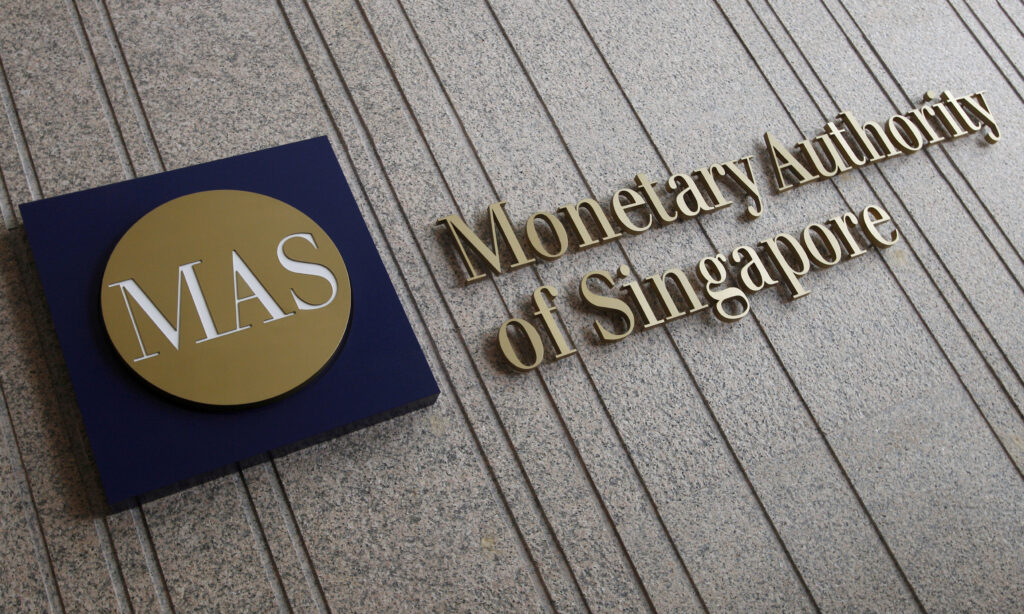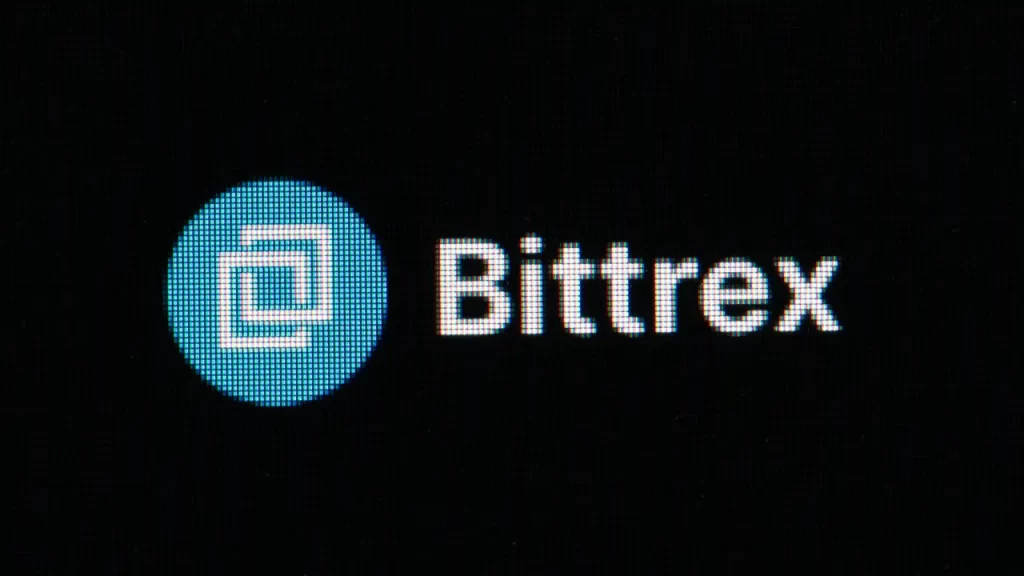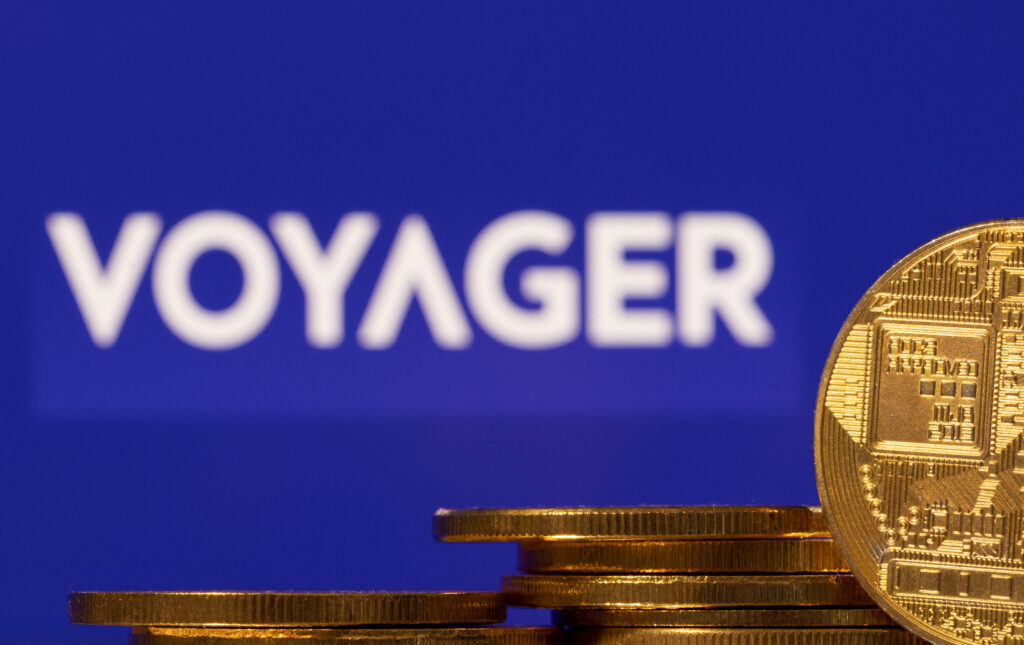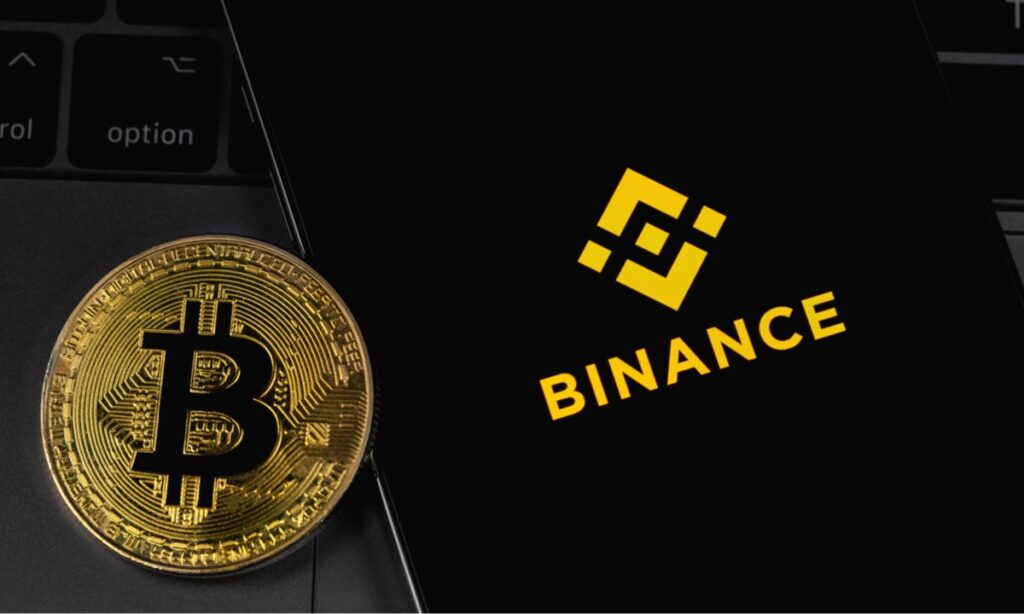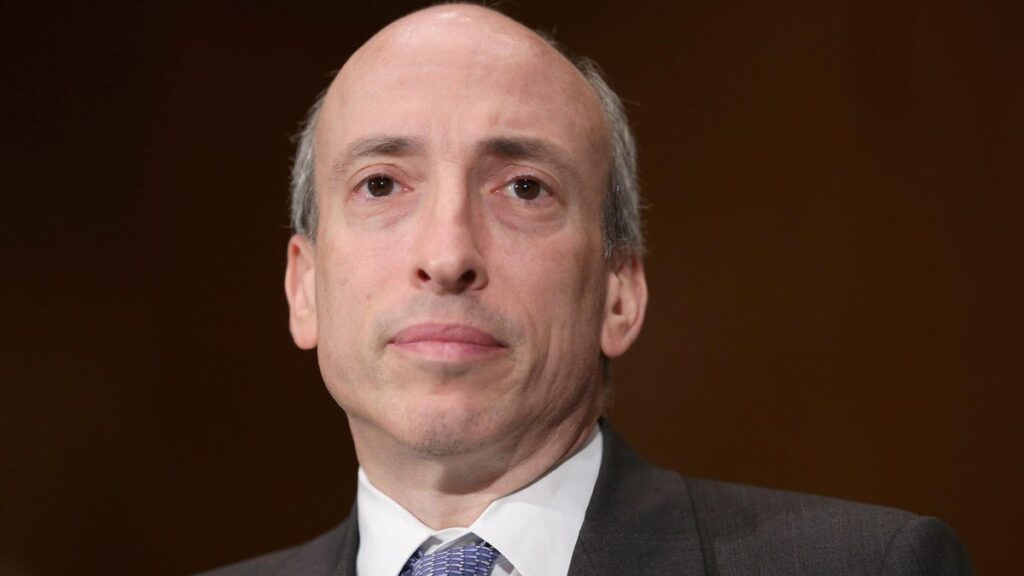Singapore’s central bank, the Monetary Authority of Singapore (MAS), has unveiled new measures to enhance investor protection and market integrity within the cryptocurrency sector.
The MAS recently announced that crypto service providers will be required to hold customer assets in a statutory trust by the end of the year, effectively mitigating the risk of asset loss or misuse and facilitating asset recovery in the event of insolvency.
These custody measures were developed following a public consultation launched in October 2022, which aimed to identify regulatory measures to minimize risks associated with crypto trading.
The MAS received substantial interest from a diverse range of respondents during the consultation process.
READ MORE: Gemini CEO Threatens Legal Action Against DCG Over Delayed Funds
In response to the consultation, the central bank highlighted that a majority of respondents agreed that digital payment token service providers (DPTSPs) should be allowed to pool user assets in the same trust account.
However, some respondents argued that DPTSPs should be required to segregate each customer’s assets in separate blockchain addresses to enhance transparency and verification of holdings.
In addition to custody requirements, the MAS mandated that crypto companies perform daily reconciliation of customer assets and maintain accurate books and records.
DPTSPs must also ensure operational independence of the custody function from other business units and maintain access and operational controls to customers’ digital payment tokens in Singapore.
Furthermore, the MAS is considering a proposal to restrict crypto service providers from facilitating lending or staking of retail customers’ digital payment tokens, while allowing such activities for institutional and accredited investors.
Respondents offered varied suggestions, with some advocating for explicit consent and risk disclosures from retail customers, while others proposed a complete ban on these high-risk and speculative activities.
The MAS emphasized its commitment to monitoring market developments and consumer risk awareness, stating that it would take appropriate steps to ensure the ongoing balance and suitability of its regulatory measures.
These new investor protection measures aim to address industry incidents like the FTX implosion, which resulted in substantial losses for customers.
Furthermore, Singaporean firms were significantly impacted by the crypto lending crisis in 2022, with notable local entities, including Three Arrows Capital and Hodlnaut, going bankrupt during the bear market.
By implementing these measures, Singapore’s central bank seeks to bolster investor confidence and establish a robust framework that safeguards customers’ assets while promoting responsible practices within the cryptocurrency industry.
According to the CEO of Merkle Science, the United States will not lose its position as a crypto hub despite recent regulatory actions.
While many top crypto executives have started looking elsewhere due to hostile regulatory measures in the US, Mriganka Pattnaik believes that crypto activity will continue to thrive in the country, at least in the medium term.
Pattnaik argues that the US possesses a higher level of innovation and a deeper talent pool compared to regions like India, China, and the United Arab Emirates, which have strong consumer markets.
Pattnaik also points out the general market dynamics of the American economy, particularly the clarity around taxation, as key reasons why crypto firms are likely to maintain the bulk of their operations in the US.
READ MORE: Co-Founders of Collapsed Three Arrows Capital Pledge Donation to Creditors
While recent actions by US regulators, such as the Securities and Exchange Commission’s actions against crypto firms, have led to a narrative of innovation moving offshore, Pattnaik believes that over time, regulations will become more moderate and provide greater clarity in the US.
However, not everyone shares this view. Binance Dubai general manager Alex Chehade argues that clear and consistent regulation is essential for large crypto firms, including those in the US, in order to have predictability, plan effectively, and budget accordingly.
Ripple CEO Brad Garlinghouse has also stated that the crypto industry has already begun moving outside the US, citing the country’s regulatory approach falling behind other crypto-friendly regions like Singapore, the UAE, and Switzerland.
Indeed, there have been instances of crypto firms exploring opportunities outside the US.
More than 80 firms from around the world applied for a crypto services license in Hong Kong, and Winklevoss-owned crypto exchange Gemini announced its pursuit of a crypto services license in the United Arab Emirates, citing hostility and a lack of clarity on crypto regulation in the US as the reason for the move.
While regulatory actions in the US have prompted some concerns and led to the exploration of alternative crypto-friendly regions, the CEO of Merkle Science believes that the US will remain a prominent crypto hub in the coming years.
The country’s innovation, talent pool, and market dynamics, along with the potential for regulatory moderation and increased clarity, contribute to its ongoing appeal for crypto firms.
However, the need for clear and consistent regulation remains a crucial factor for the success and growth of the industry.
According to a report by CoinShares, institutional investors have primarily concentrated on Bitcoin in the past two weeks as the cryptocurrency achieves new 2023 highs.
The research, led by James Butterfill, revealed Bitcoin-centric products accounted for $310.6 million of the total inflows in the past fortnight, marking a considerable 98% of all digital asset flows.
This is a significant shift following nine continuous weeks of outflows.
In 2023, this is the second instance where Bitcoin products composed 98% of total inflows into cryptocurrency investment vehicles.
The recent boost aligns with Bitcoin’s escalating price and market dominance.
The surge is widely attributed to the Bitcoin ETF application by BlackRock on June 15, followed by similar filings from Invesco, Fidelity, Wisdom Tree, and Valkyrie.
Since these submissions, Bitcoin’s price has seen a substantial increase of 25.2%, valued at $31,131.
Additionally, Bitcoin’s market dominance, gauged by its market cap compared to the total market cap of all cryptocurrencies, rose to 51.46%.
Contrastingly, Ethereum investment products registered inflows of $2.7 million last week, marking the second consecutive week of inflows and breaking a prolonged outflow trend.
Fireblocks CEO, Michael Shaulov, indicated in a conversation with Cointelegraph that institutional investors were interested in core assets like Bitcoin and Ether, but less enthusiastic about alternate cryptocurrencies.
Shaulov explained that the Ethereum narrative revolves around the likelihood of future tokenization ecosystems being based on Ethereum Virtual Machine (EVM).
This factor could boost Ethereum’s utility. However, for Bitcoin, the narrative is less defined, but most investors recognize the cryptocurrency’s essentiality in their portfolio.
Other Stories:
Bank of America’s Crypto Research Division Publishes Tokenization Report
Bittrex Copies Coinbase As It Challenges SEC’s Authority in Legal Dispute
Binance’s Reversal on Delisting Privacy Coins Marks a Major Win for Privacy Advocates
Cryptocurrency exchange Bittrex has taken a significant step in its legal battle against the United States Securities and Exchange Commission (SEC) by filing a motion to dismiss the case.
Bittrex’s argument centers around the claim that the SEC lacks the authority to regulate cryptocurrencies as securities unless specifically granted by Congress.
By challenging the SEC’s interpretation of existing securities regulations, Bittrex aims to establish a clearer regulatory framework that accommodates digital assets.
In a strategic move reminiscent of Coinbase, Bittrex has closely aligned its arguments with those of the larger cryptocurrency exchange.
This alignment suggests that Bittrex intends to leverage the robust legal framework established by Coinbase and construct a unified defense against the SEC’s lawsuit.
Similar to Coinbase, Bittrex’s legal team highlights what they perceive as deficiencies in the SEC’s allegations concerning the trading of investment contracts.
While both defendants acknowledge that the initial sale of certain crypto assets could be classified as securities contracts, they contend that this classification does not extend to assets traded on secondary markets.
Bittrex argues that once an asset is launched and actively traded on secondary markets, it should no longer be considered a security but rather categorized as a commodity or another class of digital asset.
Furthermore, Bittrex asserts that the SEC did not adequately convey that its actions were prohibited, employing a defense strategy commonly used by cryptocurrency defendants challenging the SEC’s allegations.
The legal dispute between Bittrex and the SEC originated in April when the SEC charged Bittrex and its co-founder, William Shihara, with operating an unregistered national securities exchange.
The complaint alleges that Bittrex facilitated the trading of digital assets that met the securities criteria outlined in U.S. federal securities laws without obtaining SEC registration as an exchange.
Additionally, the SEC charged Bittrex Global, the foreign affiliate of Bittrex, with failing to register as a national securities exchange in the same complaint.
Bittrex’s motion to dismiss represents a pivotal moment in its fight against the SEC.
By challenging the SEC’s authority and aligning its arguments with those of Coinbase, Bittrex aims to establish a more defined regulatory framework that accommodates the unique characteristics of digital assets.
The outcome of this legal battle will likely have significant implications for the cryptocurrency industry as a whole, as it could set a precedent for how cryptocurrencies are regulated in the United States.
Other Stories:
Cboe Resubmits Bitcoin ETF Application With Fidelity, Collaborates with Coinbase
Shiba Inu Twitter Scam Exposed By ‘Shibarmy Scam Alerts’
U.S. Federal Reserve Certifies 57 Companies to Utilize ‘FedNow’ Instant Payments System
Unusual activity has recently caught the attention of observers, involving a wallet associated with the bankrupt North American cryptocurrency broker, Voyager.
Surprisingly, a staggering 25 billion Shiba Inu (SHIB) tokens, currently valued at approximately $183,275, were transferred from the wallet.
What makes this transfer intriguing is the destination of these tokens—they were not sent to any exchange address or the broker’s fund wallet.
Instead, they were transferred to an address linked to the SHIB token itself.
Despite its bankruptcy status, the Voyager wallet still holds a significant amount of 2.84 trillion Shiba Inu tokens, equivalent to an astonishing $20.8 million.
It is worth noting that just a few months ago, the wallet held as many as 6.6 trillion SHIB tokens, indicating substantial fluctuations in the assets controlled by the broker.
This movement of tokens from the bankrupt broker’s wallet is not limited to SHIB alone.
Reports suggest that other cryptocurrencies have also been subject to transfers, all stemming from the ongoing resumption of withdrawals.
In an effort to meet their obligations, the broker has allowed lenders to withdraw approximately 35% of their cryptocurrencies, with a withdrawal window open between June 20 and July 5.
One of the platforms facilitating these withdrawals is the Gemini crypto exchange.
The future of Voyager’s holdings and the implications for the wider crypto landscape remain uncertain, making this an unfolding story that demands our attention.
The movements of these tokens and the transfers from the broker’s wallet raise questions about the broker’s intentions and the potential impact on the market.
It is crucial to monitor the developments surrounding Voyager closely.
The destination of the transferred tokens, particularly to an address linked to the SHIB token itself, adds an intriguing element to the situation.
The broker’s significant fluctuations in token holdings also suggest a dynamic and ever-changing landscape within the crypto industry.
As the broker allows lenders to withdraw their cryptocurrencies, platforms like Gemini are playing a crucial role in facilitating these transactions.
These actions may provide some relief to lenders, but the overall implications and long-term consequences for Voyager and the broader crypto community remain uncertain.
The unfolding story of Voyager’s activities serves as a reminder of the inherent risks and volatility associated with the cryptocurrency market.
It highlights the importance of due diligence and cautious decision-making when engaging with cryptocurrency brokers and platforms.
Other Stories:
Cboe Resubmits Bitcoin ETF Application With Fidelity, Collaborates with Coinbase
U.S. Federal Reserve Certifies 57 Companies to Utilize ‘FedNow’ Instant Payments System
Paysafe Payment Solutions, the European banking partner of Binance, announced on Thursday that it will no longer offer its embedded wallet solution to the U.S. cryptocurrency exchange across the European Economic Area (EEA) starting from September 25.
In an email to Reuters, Paysafe stated that they are working with Binance to implement a fair and orderly process to terminate this service over the next few months.
Binance confirmed the news and stated that it would be changing its banking provider for euro deposits and withdrawals through the Single Euro Payments Area (SEPA), but no specific details about the new partner were disclosed.
A spokesperson from Binance mentioned that more information will be provided at a later time.
Typically, Binance accesses SEPA through payment intermediaries.
However, the spokesperson assured that during this transition, all methods of depositing and withdrawing other fiat currencies, as well as buying and selling cryptocurrencies on Binance.com, will remain unaffected.
Paysafe’s decision to end its wallet solution comes at a time when Binance is under scrutiny from regulators who are aiming to crack down on money laundering.
In recent developments, Binance and its U.S. affiliate reached an agreement with the Securities and Exchange Commission (SEC) to ensure that customer assets in the United States remain within the country until the resolution of a comprehensive lawsuit filed by the regulatory agency.
Last year, Binance partnered with Paysafe to enable its users to deposit sterling via Faster Payments, a network responsible for overseeing payments and bank account transfers in Britain.
In summary, Paysafe Payment Solutions will no longer offer its embedded wallet solution to Binance across the European Economic Area.
Binance will seek a new banking provider for euro transactions through SEPA.
However, the change will not impact other deposit and withdrawal methods or the trading of cryptocurrencies on Binance.com.
Paysafe’s decision coincides with increased regulatory scrutiny faced by Binance, and the company has also recently resolved an agreement with the SEC regarding customer assets in the United States.
Other Stories:
Crypto Investor Reports Huge Bitcoin (BTC) Gains With Questionable Strategy
Bitcoin Depot, a leading cryptocurrency ATM company in the United States, has revealed its plans to go public after successfully closing a merger deal.
The merger, facilitated by fintech firm GSR II Meteora Acquisition Corporation, was approved by stockholders on June 30.
The deal, which was reported in August 2022, carried a price tag of $885 million and is expected to enable investors to access Bitcoin Depot on the Nasdaq exchange starting from July 3.
Brandon Mintz, the founder and CEO of Bitcoin Depot, stated that the merger was aimed at supporting various growth opportunities and fostering the widespread adoption of Bitcoin (BTC) in North America.
Investors will have the opportunity to trade Bitcoin Depot shares on the Nasdaq under the ticker symbols BTM and BTMWW for common stock and public warrants, respectively.
This announcement comes at a time when regulatory scrutiny of cryptocurrency firms in the United States is intensifying.
The Securities and Exchange Commission has recently filed lawsuits against major exchanges, such as Binance and Coinbase, accusing them of conducting unregistered securities offerings.
Despite this, investment vehicles that offer exposure to cryptocurrencies are gaining popularity. BlackRock, for instance, filed an application in June to list a Bitcoin exchange-traded fund, indicating growing interest in crypto-related investments.
Bitcoin Depot, established in 2016, has emerged as one of the largest crypto ATM companies in North America, boasting more than 9,130 locations, as stated on its website.
However, the crypto industry is not without its challenges. In May, Bitcoin of America, another ATM provider, announced the closure of its operations in Connecticut due to the state’s Department of Banking asserting that the company lacked the necessary licensing.
With its merger and subsequent public listing, Bitcoin Depot aims to capitalize on its strong market position and expand its operations further.
The company’s commitment to driving Bitcoin adoption aligns with the growing interest in cryptocurrencies and the increasing demand for accessible and user-friendly avenues to buy and sell digital assets.
As Bitcoin Depot makes its debut on the Nasdaq, it will be interesting to observe how this development shapes the landscape of the cryptocurrency industry in the United States.
Other Stories:
Maple Finance Launches Direct Lending Program, Filling Void Left by Bankrupt Lenders
ASX Considers Listing Tokenized Real-World Assets
UK To Pass Law To Bring Cryptocurrencies Under Traditional Asset Regulations
The United States Bankruptcy Court for the Southern District of New York has granted approval for Celsius Network, a bankrupt cryptocurrency lender, to convert its altcoins into Bitcoin.
The decision was made by Judge Martin Glenn, and the liquidation process will pave the way for the distribution of funds to creditors in the near future.
The approval of this proposal came after extensive discussions between Celsius and the U.S. Securities and Exchange Commission (SEC).
According to the ruling of the bankruptcy judge, the struggling lender is now authorized to sell or convert any cryptocurrency assets, with the exception of tokens associated with Withhold or Custody accounts, into Bitcoin (BTC) or Ether (ETH) starting from July 1, 2023.
Celsius Network faced bankruptcy in 2022 following the collapse of the Terra ecosystem, which affected its Terra (LUNA) and TerraUSD (UST) tokens.
Creditors have been awaiting a resolution since the bankruptcy filing several months ago, and this recent approval opens up new possibilities and extends the ongoing proceedings.
In light of the recent regulatory crackdown by the SEC on altcoins, which the regulator has categorized as securities, many cryptocurrency companies are opting to convert their altcoins into BTC and ETH.
Notable altcoins that have been labeled as securities by the SEC include Cardano.
Despite the ongoing bankruptcy proceedings, Celsius Network was acquired by the crypto consortium Fahrenheit in May 2023.
Under the stewardship of its new owners, the network continues to operate.
The new owners have announced their intention to develop a revised bankruptcy plan, although specific details of these plans have not yet been disclosed.
However, it is now clear that the assets will be exclusively distributed in Bitcoin and Ether.
Following Celsius Network’s bankruptcy, other companies in the cryptocurrency industry, such as Voyager Digital and FTX, have also faced financial challenges.
As a result, they have been exploring unique strategies to address the demands of their creditors for reimbursement.
In summary, the United States Bankruptcy Court’s approval for Celsius Network to convert its altcoins into Bitcoin marks a significant step towards resolving the lender’s bankruptcy proceedings.
With the involvement of the SEC and the acquisition by Fahrenheit, the network is now moving forward under new ownership and is expected to distribute its assets in BTC and ETH.
This development reflects a broader trend in the industry as crypto companies grapple with regulatory concerns and seek solutions to address creditor demands.
Other Stories:
Maple Finance Launches Direct Lending Program, Filling Void Left by Bankrupt Lenders
UK To Pass Law To Bring Cryptocurrencies Under Traditional Asset Regulations
Three committee chairs in the United States House of Representatives have expressed their dissatisfaction with the response received from U.S. Securities and Exchange Commission (SEC) Chair Gary Gensler regarding their inquiry into recordkeeping requirements.
Judiciary Committee Chair Jim Jordan, Oversight Committee Chair James Comer, and Financial Services Committee Chair Patrick McHenry issued a letter demanding a more satisfactory response, stating that Gensler’s reply did not address their direct requests.
The congresspeople, joined by Rep. Tom Emmer, were prompted to take action following a Wall Street Journal report that criticized the SEC and other agencies for inadequate recordkeeping.
The report highlighted the use of chats by government officials for official business, which were not being searched to fulfill Freedom of Information Act requests.
The recent letter reiterates the original requests and includes a demand for an explanation if Gensler does not intend to comply.
The letter, dated June 28, also points out inconsistencies in Gensler’s publicly accessible meeting schedules in 2021 and makes mention of cryptocurrency.
Gensler faced additional criticism related to cryptocurrencies when the Blockchain Association released a paper suggesting that he should recuse himself from digital asset enforcement decisions.
The paper claimed that the SEC had neglected its role as a rulemaking body in the digital asset space.
It specifically raised concerns about the SEC’s stance on whether digital assets other than Bitcoin qualify as securities and whether digital asset trading platforms are considered unregistered securities exchanges.
The paper argued that Gensler had shown bias in his statements, asserting that he had already formed opinions on these matters.
The paper reminded recipients of Wells notices, who are individuals or entities facing potential SEC enforcement actions, that they could seek Gensler’s recusal either through the SEC or in federal court.
In summary, three committee chairs have expressed their dissatisfaction with the SEC Chair’s response to their inquiry into recordkeeping requirements, citing unaddressed requests.
This comes in the wake of criticism regarding the SEC’s recordkeeping practices and Gensler’s handling of digital asset enforcement decisions, prompting calls for his recusal in certain cases.
Other Stories:
SEC Commissioner Pushing For ‘Reserved’ Approach to Cryptocurrency Regulation
Bankrupt Crypto Exchange FTX Takes Steps Towards Relaunching as a New Entity
EDX Cryptocurrency Exchange Prepares to Switch Custody Providers
The United Kingdom is on the verge of passing a bill that will subject cryptocurrencies to the same regulations as traditional assets, signaling a significant milestone for the local crypto community.
This legislation, known as the Financial Services and Markets Bill, has received approval from the upper chamber of the U.K. parliament on June 19 and is now awaiting King Charles’ royal assent, the final step required for a parliamentary bill to become law.
Discussions surrounding the bill began in the British Parliament back in July 2022, and its enactment is expected to bring about legal clarity and support the wider adoption of cryptocurrencies in the country.
Under the new law, the Treasury, Financial Conduct Authority (FCA), Bank of England, and Payments Systems Regulator will be granted the authority to establish and enforce regulations for crypto businesses.
The introduction of this legislation reflects the U.K.’s ambition to leverage the advantages of blockchain technology for the private sector and the overall economy.
Andrew Griffith, the economic secretary to the U.K. Treasury, expressed the country’s desire to enable firms to fully utilize the opportunities presented by crypto assets through appropriate regulatory measures.
The long-term vision is to create an environment that allows businesses to maximize the potential benefits derived from cryptocurrencies.
Furthermore, this regulatory framework could serve as a catalyst for attracting more crypto firms to the U.K., particularly in light of the increasingly stringent regulatory environments observed worldwide.
A recent example is venture capital firm Andreessen Horowitz (A16z), which announced the establishment of its first office outside of the United States in London.
This decision followed productive discussions with the U.K. prime minister, policymakers, and the FCA, with the firm’s crypto founder and managing partner, Chris Dixon, highlighting the appeal of a predictable business environment as a key factor behind the expansion.
The impending passage of the Financial Services and Markets Bill in the U.K. signifies a pivotal moment for the crypto community within the country.
By bringing cryptocurrencies under the same regulatory framework as traditional assets, the new law aims to provide legal clarity and foster the growth of the crypto industry.
This move positions the U.K. as an attractive destination for crypto firms seeking a supportive regulatory environment, potentially paving the way for further advancements in the adoption and utilization of cryptocurrencies in the nation.
Other Stories:
SEC Commissioner Pushing For ‘Reserved’ Approach to Cryptocurrency Regulation
Bankrupt Crypto Exchange FTX Takes Steps Towards Relaunching as a New Entity
EDX Cryptocurrency Exchange Prepares to Switch Custody Providers



